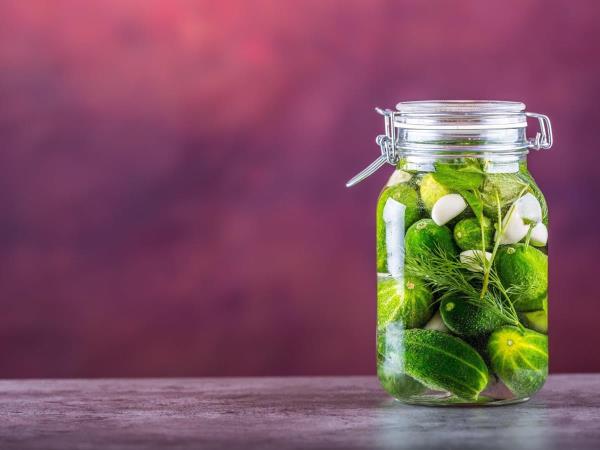If you've ever wondered why our grandparents spent winters with fewer colds and more energy – a part of the answer lies in fermented vegetables. According to some studies, fermented foods may reduce the risk of inflammatory diseases by as much as 27% if consumed regularly at least 3 times a week (Source: Stanford University, 2021).
More Than Just Cucumbers – Diversity Brings Strength
Although we all say "sour pickles," a jar doesn't have to contain only cucumbers. In fact, in traditional medicine, the belief is that the more varied the pickled vegetables are, the more bodily systems they will simultaneously support. Remember, pickling vegetables is not just an autumn task, but it is worth doing every time a certain vegetable is in season. We can pickle:
- celery and red cabbage,
- yellow peppers,
- carrots,
- cauliflower,
- kohlrabi, and
- capers.
Each of these vegetables brings its own value. Cabbage is an almost essential part of the winter diet – besides being full of vitamin C, it also contains substances known as glucosinolates – natural compounds that act as body cleansers and protect our cells from harmful changes. In simple terms – cabbage is not just for sauerkraut, but is a true natural shield against cancerous changes.
In the green family, kohlrabi and cauliflower are companions. Both are rich in B vitamins, fiber, and antioxidants, especially isothiocyanates, which, according to the American Institute for Cancer Research, can reduce the risk of colon cancer by 18% if included in the diet at least twice a week.
Carrots – More Than Just for Eyes
Carrots contain carotenoids, among which beta-carotene is the most well-known – the one that gives them their orange color and is converted by the body into vitamin A. This vitamin is known to support vision, but its benefits go even further – it regulates the immune system and protects mucous membranes.
In a study published in the scientific journal Nutrients (2020), it was found that people who regularly consume foods high in carotenoids are 32% less likely to develop cardiovascular diseases. Pickled carrots in combination with other acidic ingredients become an excellent source of these compounds.
Colorful Peppers – for Joy and Heart Health
Although it may not be obvious, yellow peppers contain more vitamin C than lemons! One hundred grams of yellow pepper contain as much as 183 mg of vitamin C, while a lemon contains "only" 53 mg. And why is this important? Because vitamin C is not only for the immune system. It also aids in the production of collagen, which is crucial for healthy joints, skin, and blood vessels.
Capers – Small but Mighty
Many associate capers with Italian cuisine, but in traditional medicine, they are valued for their detoxifying properties. They contain a substance called rutin, which strengthens blood vessel walls. They also regulate blood sugar, which is crucial for those dealing with insulin resistance. Capers have been part of the Mediterranean diet for centuries, and according to a 2019 study published in the Journal of Ethnopharmacology, regular consumption of capers helps lower blood triglyceride levels – fats associated with heart diseases.
What About the Intestines?
Winter eating habits often mean more meat, fewer fibers, and less fresh food. This is where sour vegetables shine as a savior. Natural fermentation promotes the growth of good bacteria in the intestines, such as Lactobacillus, which aid in digestion, regulate appetite, and even influence mood. According to a study by Harvard Medical School from 2021, people who regularly consumed fermented vegetables showed reduced levels of inflammatory markers in the body, such as interleukin-6, indicating improved immune system function.
Beware of Preservatives – Less is More
Many homemakers add preservatives like sodium benzoate, which is permitted, but studies show that in larger quantities, it can affect cells. In vitro studies (conducted in laboratory conditions) have shown that sodium benzoate can harm lymphocytes – white blood cells crucial for our defense. That is why natural preservatives such as vinegar, salt, sugar, and spices with antibacterial properties like dill, bay leaves, fennel, and whole peppercorns have been preferred in traditional practices. Nature has been here long before chemistry.
How to Prepare Sour Pickles – Without Toxic Additives
The recipe we reveal to you is based on ancient methods also endorsed by some modern nutritionists who advocate a gut-friendly diet – a diet friendly to the intestines.
What You Need:
- Vegetables of your choice: carrots, cabbage, kohlrabi, peppers, cauliflower
- Spices: capers, peppercorns, dill, fennel, bay leaf
- Vinegar, salt, and sugar (1 teaspoon of salt and sugar per jar)
- Water and vinegar in a 3 parts water, 1 part vinegar ratio
Chop the vegetables, arrange them in sterilized jars, add the spices. Pour the mixture of vinegar and water over them, seal the jars, and place them in a dark, cool place. After three to four weeks, the pickled vegetables will be ready. No chemicals, no secrets.
In Conclusion – More Than Just Taste Captured in a Jar
Although it may seem incredible, in a single jar of pickled vegetables, you can consume more vitamin C than in a whole apple, more fiber than in two slices of whole grain bread, and more beneficial bacteria than in many probiotic capsules. So, the next time you open a jar of homemade sour pickles or peppers, be aware that you are not only enjoying a tasty side dish but also a traditional folk remedy passed down through generations.









 Would you like to be informed about news on the website?
Would you like to be informed about news on the website?

